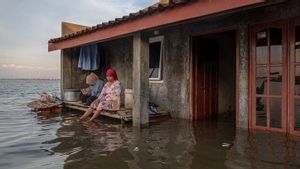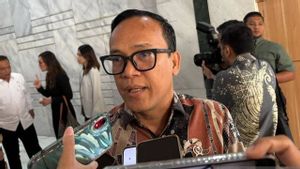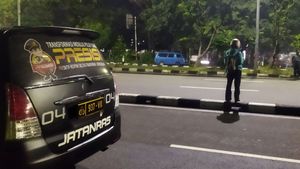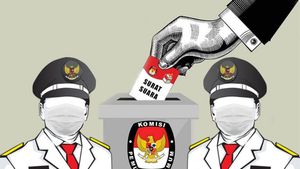JAKARTA - The majority of people in the parliament, including the DPR, MPR and DPD RI, are unanimous in rejecting the government's plan to make basic commodities or basic necessities and education costs as objects for the imposition of Value Added Tax (VAT) through the revision of Law Number 6 of 1983 concerning General Provisions and Procedures. Taxation (KUP).
The reason is, this policy is very counterproductive to the government's program in carrying out economic recovery during the COVID-19 pandemic.
"If basic necessities are taxed, automatically the price of goods at the consumer level will also increase, so that purchasing power will be depressed again, even though this purchasing power is needed to recover from the COVID-19 pandemic," said the Head of the NasDem Faction of Commission XI DPR RI, Fauzi H. Amro told reporters, Monday, June 14.
The government should, he continued, present policies that ease the burden on the people, not make it more difficult. Because basic food is the main commodity of the community. Likewise education, which is a human right and guaranteed by law.
"It should not be liberalized, it should be left to the market mechanism. The state must be present in providing education services and fulfilling the basic needs of the community at an affordable price," he stressed.
Moreover, said Fauzi, some time ago, the Government actually provided a stimulus for the Sales Tax on Luxury Goods on the purchase of new cars (PPnBM) which was reduced even to zero percent.
Ironically, now the people are even subject to taxes on basic necessities and education costs. This policy is certainly very unfair because the target is targeting small economies downwards.
"Therefore, we, the NasDem faction of the DPR RI solidly reject the basic food tax and education fee taxes because they will further burden the people's economy and make people's purchasing power even more depressed," said the HMI alumnus
The legislator for the South Sumatra electoral district also urged the Government to immediately withdraw and cancel the revised draft of Law Number 6 of 1983 concerning General Provisions and Tax Procedures (KUP) related to the imposition of VAT on staples and education costs.
According to him, the impact of implementing VAT is not only burdensome to the lower middle class, but has the potential to increase poverty rates, and is counterproductive to economic recovery efforts.
"Until now, Commission XI of the DPR RI has not received a draft regarding changes to the general provisions of taxation, maybe the draft is still with the leadership of the DPR RI. However, I have heard the public's complaints about the plan, so we as representatives of the people will refuse if the tax provisions burden the community," he explained.
Fauzi also suggested that the Government, especially the Ministry of Finance, should be more creative in filling the budget shortfall in the tax sector, not by collecting basic food taxes and education costs.
"Look for other sources of income, for example pursuing taxes on technology companies operating in Indonesia such as Google, Facebook, Instagram, Twitter, Netflix or others. As well as Income Tax (PPh) taxes for e-commerce players or online stores, marketplaces such as Tokopedia, Bukalapak, Shopee, Gojek, Grab and others," explained Fauzi.
Second, the government can also cut the salaries of the directors and commissioners of SOEs, which are known to be quite large, even reaching billions of rupiah in a year.
"The Ministry of Finance must also reform and improve the tax database system through tax digitization, so that all taxpayers are properly registered and make it easier for tax officials to collect taxes," he said.
In addition, added Fauzi, tax revenue can still be boosted by other means than raising the tariff, considering that international commodity prices have also started to improve.
"So there is no need for basic food and education costs to be taxed, especially when people are experiencing economic difficulties due to the COVID-19 pandemic," he said.
The English, Chinese, Japanese, Arabic, and French versions are automatically generated by the AI. So there may still be inaccuracies in translating, please always see Indonesian as our main language. (system supported by DigitalSiber.id)













